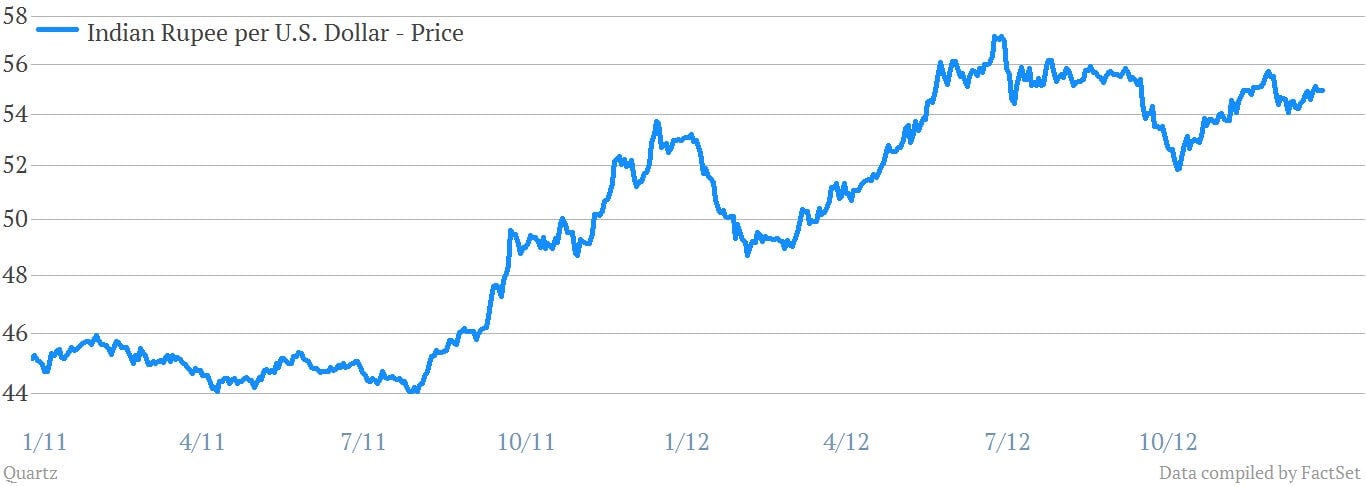From the cricket pitch to cockpits, falling rupee weakens expats’ allure
Just a year ago, enterprising professionals were fleeing deteriorating conditions in Europe and the United States for India, driving an increase in expat hiring of some 15% to 20%. But with growth slowing and the rupee tumbling 20% against the dollar since August 2011, expatriate talent is becoming an expensive luxury for Indian companies, with the squeeze most apparent among two of the sectors most dependent on foreign help: airlines and cricket clubs.


Just a year ago, enterprising professionals were fleeing deteriorating conditions in Europe and the United States for India, driving an increase in expat hiring of some 15% to 20%. But with growth slowing and the rupee tumbling 20% against the dollar since August 2011, expatriate talent is becoming an expensive luxury for Indian companies, with the squeeze most apparent among two of the sectors most dependent on foreign help: airlines and cricket clubs.

From its splashy 2008 launch, the Indian Premier League has made a show of drawing in many of the world’s top cricketers, such as Australia’s Shane Warne, for a speedy, shortened version of the game complete with cheerleaders, television time-outs, and multimillion dollar salaries for a season that lasts less than two months.
“The rupee’s fall and the fact that most salaries [are] paid in dollars has affected the owners very badly,” says Ankit Sood, an executive search consultant with Amrop India in Gurgaon. The league’s governing council is now leaning toward switching payment terms from dollars to rupees, shifting currency risk onto the athletes.
The rupee’s plummet has hit the airline industry hard, too. India’s rapidly expanding aviation sector relies significantly on foreign pilots, especially to fill senior roles, and generally pays them at least partly in dollars. Airlines also bear the brunt of the weakening rupee in fuel costs. With something having to give, India’s carriers have opted, unsurprisingly, to keep their engines running, cutting their ranks of foreign pilots by 35% as of late November from a year earlier.
Currency concerns alone aren’t responsible for that reduction. The Indian government previously ordered airlines to sack their expats by 2010 but the scarcity of experienced pilots for large jets has made that deadline unworkable, prompting the government to extend the deadline to the end of 2013, though officials admit India isn’t producing enough senior pilots to keep up with commercial fleet growth.
Those developments come on the heels of July court decisions upholding limits on the business activities of foreign architects and lawyers. New rules introduced last year also require expats to earn a salary of at least $25,000 a year to be eligible for an employment visa, a blow to nonprofit groups that had been among the more frequent employers of expats.
But neither those rules nor the weak rupee will hold back major companies looking to fill top roles with executives who can provide a global perspective, says Sood, pointing to the example of Karl Slym, recruited in August from General Motors to be managing director of Tata Motors.